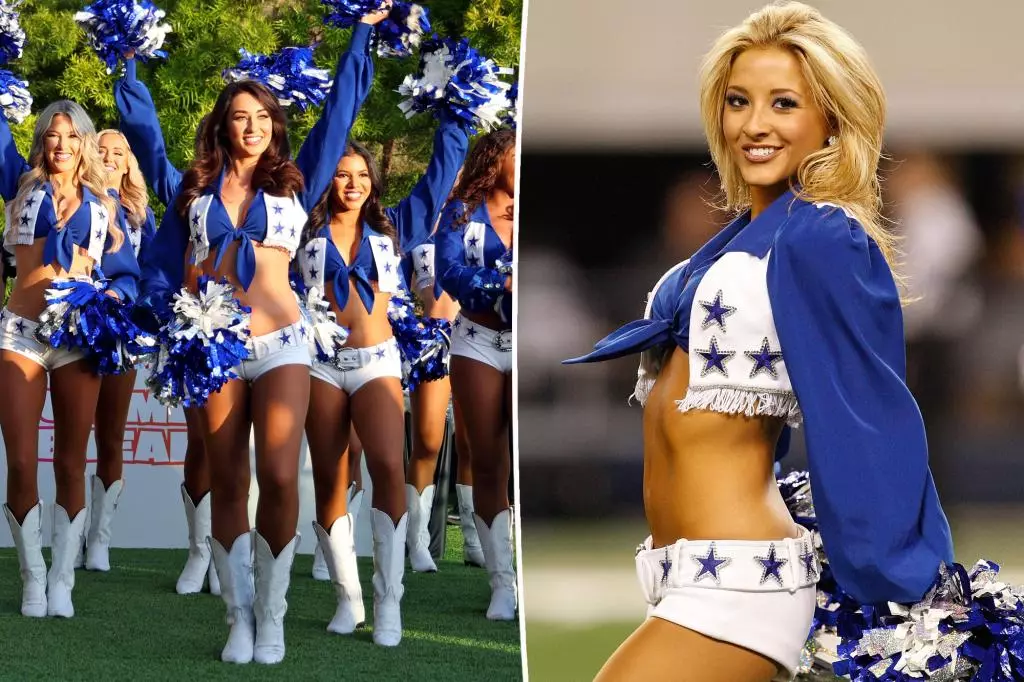The world of professional cheerleading is often glamorized, portraying a lifestyle filled with glitz and glory at the sidelines of NFL games. However, this image glosses over the harsh realities that performers face, particularly concerning their compensation. In a significant shift, the Dallas Cowboys Cheerleaders have recently garnered a remarkable 400 percent salary increase that will take effect in the 2025 NFL season. At the forefront of this initiative are the very athletes who delight audiences with their talent and dedication—women who have long fought for their right to a fair wage. This milestone achievement has been documented in the second season of their compelling Netflix series, “America’s Sweethearts: Dallas Cowboys Cheerleaders,” highlighting not only the glitz of cheerleading but also the grit required to make their voices heard.
Beyond the Glitter: Real Life Challenges of Cheerleaders
Not long ago, reports show that cheerleaders like Jada McLean earned a mere $15 per hour along with a disheartening $500 per appearance in 2024. Following this substantial wage increase, her pay could rise to $75 per hour—a commendable leap; however, the fight is not over. McLean candidly expressed to The New York Times the financial struggle that many cheerleaders continue to endure. Despite the salary increase, the absence of health benefits remains a glaring issue that underscores the need for ongoing dialogue around the rights of cheerleaders as professional athletes. “Yes, we should still do something outside of just cheering,” she asserted, pointing out that while an additional job might be necessary, it shouldn’t have to compromise the financial stability of individuals who dedicate their lives to the sport.
The fight for fair wages isn’t merely a financial issue; it’s a matter of respect and acknowledgment of the hard work that comes with being a cheerleader. Many women on the team have voiced that the pay structure has underestimated the training and commitment necessary for their role, which extends well beyond the game day performance.
Collective Strength: The Power of Unity and Action
The journey toward achieving this salary increase wasn’t paved with ease; it involved a united front and unwavering determination from the cheerleaders themselves. McLean and her fellow dancers even considered striking, a bold move that illustrates their commitment to advocating for fair treatment. “We pushed and we got back good results,” Armani Latimer shared, signifying that persistent activism can lead to tangible outcomes that could alter the trajectory for future cheerleaders. Her emotional reflection on the fight ensures that the voices of these female athletes are not lost but instead pave the way for better conditions for those who follow.
With previous salary figures noted as low as $7 per hour for ex-cheerleader Erica Wilkins, it’s crucial to recognize how far the narrative around cheerleading has come. Unfortunately, Erin Wilkins’s lawsuit laid bare the financial realities that many cheerleaders faced, igniting a necessary conversation about wage disparities within the organization. Even Kristin Westbrook’s contributions—having earned $15 an hour and $400 per NFL game between 2019 and 2022—highlight the inequity that previously plagued the profession.
A New Narrative: Telling their Stories
The release of “America’s Sweethearts: Dallas Cowboys Cheerleaders” during this transformative period offers insight into the often unseen labor that goes into cheerleading. The series captures intense auditions, rigorous training sessions, and the emotional toll that the profession can extract. This powerful storytelling provides a window into their relentless pursuit of justice not just for themselves, but for the cheerleaders of tomorrow.
The 400 percent salary increase is not merely a financial correction; it represents a broader cultural shift within sports towards recognizing and valuing the contributions of cheerleaders. These athletes are more than just entertainers; they are advocacy warriors who symbolize the fight for equity, demonstrating their resilience and ultimately reshaping the future narratives of professional cheerleading.
As we celebrate their achievements, it becomes essential to remain engaged in discussions around equity in sports, ensuring that all athletes, regardless of their roles, are recognized and fairly compensated. The Dallas Cowboys Cheerleaders are changing the narrative, proving that collective effort can lead to substantive change—an inspiration for all who face uphill battles for fair treatment in their professions.

